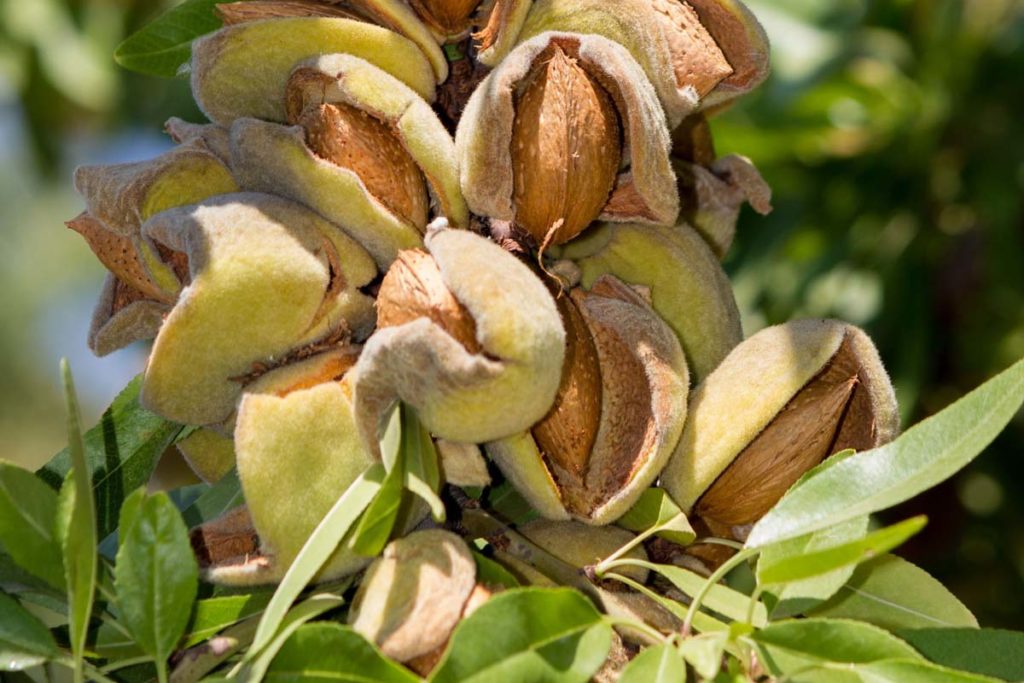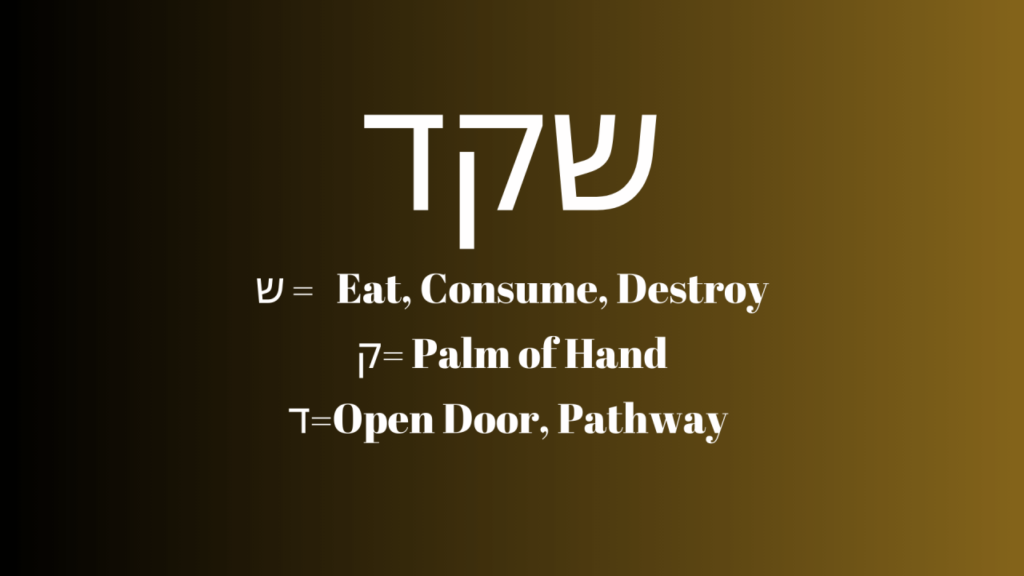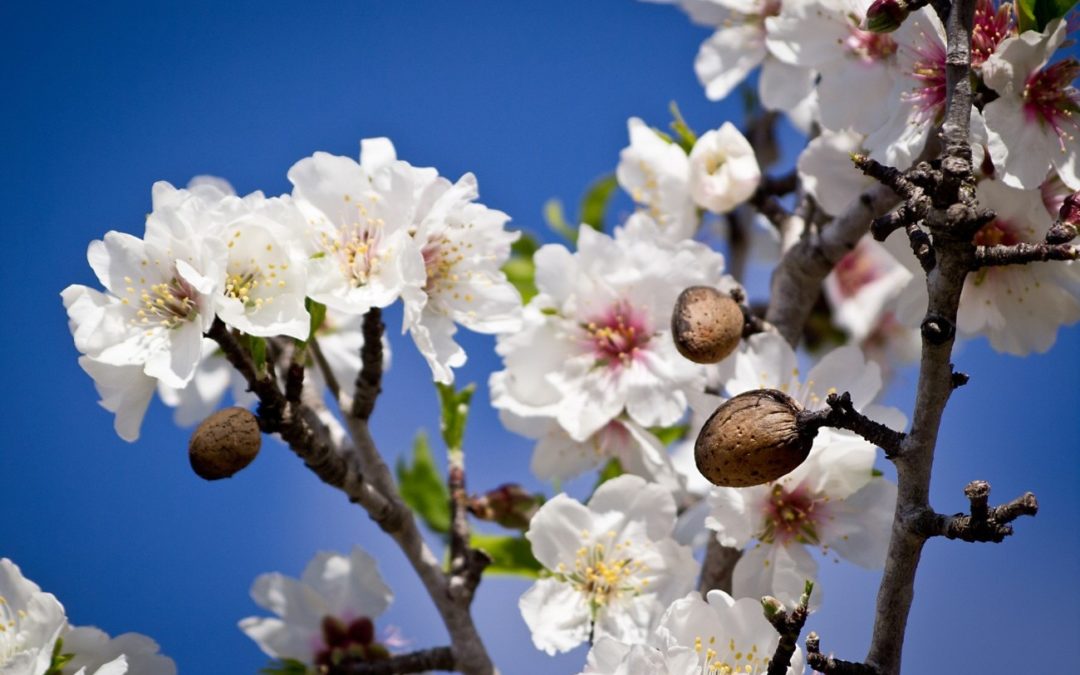Almond trees are the first to bloom in Israel in the winter, from January to March; almond blossom is the harbinger of the approaching springtime in Israeli culture. The almond tree is the symbol of spring, renewal, and hope.
God loves to use word pictures. He sometimes paints us a picture with His words. He often teaches a truth through an image if he wants us to remember something. We see this over and over again in the book of Jeremiah.
In the first chapter of Jeremiah, God is very descriptive.
5 “Before I formed you in the womb, I knew you; Before you were born, I sanctified you; I ordained you a prophet to the nations.”
Jeremiah was probably anywhere from 17 to 20 years old at this time. He felt that his youth prevented him from being an authoritative messenger of God’s word.
Jerimiah said;
6 Hold it, Master God! Look at me. I don’t know anything. I’m only a boy!”
Later, Jeremiah is told by God to touch his mouth and say to him that he has put His words in Jeremiah’s mouth. This mission that God is sending to Jeremiah will be incredibly difficult. Your job is to pull up and tear down, take apart and demolish, and start over, building and planting.”
God encourages Jeremiah, showing him a personal image revelation that will bring him assurance throughout his life.
It’s a threefold response. First, God comforts Jeremiah with the assurance that he will reveal where to go and what to say.
Second, God promises to deliver Jeremiah from all danger.
And third, God reminds Jeremiah that he’s given him the authority to carry out his ministry.
For I know the plans I have for you,” declares the Lord, “plans to prosper you and not to harm you, plans to give you hope and a future.” (Jeremiah 29:11).
The Hebrew word for almond is shaqed, and the word for watching is shoqed. They are both from the same basic root of “to watch” or “to wake,” which has the meaning “intent on doing.” The LORD is telling Jeremiah that He will bring about His word. He will be intent on doing what He promises.
Almond trees are the first to bloom, usually at the end of winter, right before spring. But almonds are the last fruit to develop in all fruit trees.
Why almonds? In nature, the almond flowers first, but takes a long time to produce ripe fruit. This particular branch developed buds, blossomed, and produced ripe almonds all at the same time — something that any farmer of the period would have known to be impossible but for a miracle, like Aron’s rod in the book of Numbers 17.
It’s a bit early, as most trees and other species will still be in wintry slumber, but not the almond tree; it stretches toward the sun, ready to bloom,
and produces tens of thousands of delicate white or pink flowers, all the more prominent because they bloom before any leaves.
From the Hebrew word for almond, “shaked,” comes another word, “shakdanoot.” This is applied to someone who studies the Torah with perseverance and diligence. In the Book of Jeremiah (1:11-12), “shakdanoot” also denotes watchfulness.
God repeated the warning through Jeremiah: “Behold, I will watch (shaked) over them for evil, and not for good…” (Jeremiah 44:27). God’s message to Israel was that sin has consequences, and there will come a time of reckoning – namely the destruction of Jerusalem and the captivity of Israel.
Jeremiah 1:11-12
Jeremiah’s first lesson in his training as a prophet.
Moreover, the word of the LORD came to me, saying, “Jeremiah, what do you see?” And I said, “I see a branch of an almond tree.” Then the LORD said to me, “You have seen well, for I am ready to perform My word.”
Jeremiah, what do you see? Jeremiah would receive a message to speak, but he had to see it before he could speak.
Almond, in definition, relates to East Qedem – East. This noun may be simply the direction where the sun rises) ready to rise.”
qedem and means “the direction of the rising sun.”
“Before you can make an impression upon another person’s heart, you must have an impression made upon your soul. You must be able to say, concerning the truth, ‘I see it,’ before you can speak it so that your hearers also shall see it.” (Spurgeon)
The branch of an almond tree was significant in two ways. First, the almond was well known as the first tree to bud in the spring. This indicated that God was ready to fulfill His word quickly, just as the almond tree seems ready to perform His Word.
Secondly, the Hebrew word for almond tree is close to and derived from the Hebrew word for watchful, and this word is used in God’s response to Jeremiah. “These verses contain a play on words that are lost in English but is vital for the force of the vision. The ‘almond tree’ is saved, and God is ‘watching’ (soqed) over his word to fulfill it.” (Feinberg)
LORD said to me, “You have seen well, for I am ready to perform My word.” to wake, watch, wake, be alert
(Qal) to keep watch of, be wakeful over
Anathoth land of Benjamin From Anathoth, you can see the walls of Jerusalem, which remains to this day a center for almond growing. The modern visitor to the area in early spring is promised the memorable sight of almond trees in bloom.” (Thompson)
Erupting with flowers before spring, the almond tree is a bounty of Jewish symbolism
This season here, Brad and I are looking forward to walking through the blooming trees of Dogwood and Cherry. They have miles of these trees and host festivals commemorating their beautiful blooms.
Jeremiah 1:11-12, The word of the LORD came to me: “What do you see, Jeremiah?” “I see the branch of an almond tree,” I replied. The LORD said to me, “You have seen correctly, for I am watching to see that my word is fulfilled.”
Branch maqqêl, mak-kale; or (feminine) מַקְּלָה maqqᵉlâh; from an unused root meaning apparently to germinate; a shoot, i.e., stick (with leaves on, or for walking, striking, guiding,)rod, (hand-)staff. Strong’s H4731 in the following manner: rod, staff
In as much as Almonds are known to be one of the earliest blooming trees in spring, they are also among the last trees to bear fruit in late summer or autumn. Almond trees require extended cold temperatures during winter before producing ripe nuts.

The first mention of the word “almond” in the Bible.
Israel sends his sons to Egypt to present gifts to Pharoah’s second-in-command, Joseph, not realizing that man is his son.
Genesis 43:11
And their father Israel said to them, “If it must be so, then do this: Take some of the best fruits of the land in your vessels and carry down a present for the man—a little balm and a little honey, spices and myrrh, pistachio nuts and almonds.
In Exodus, we see almonds as a decorative engraved on the menorah in the Tabernacle: Exodus 25:33-34 and three more in Exodus 37:19-20.
Three bowls shall be made like almond blossoms on one branch, with an ornamental knob and a flower, and three bowls made like almond blossoms on the other branch, with an ornamental knob and a flower—and so for the six branches that come out of the lampstand. On the lampstand itself, four bowls shall be made like almond blossoms, each with its ornamental knob and flower.
It is beautiful to see that the menorah has branches of three different almond tree seasons: bud, flower, and fruit.
Aaron’s staff miraculously bloomed, establishing his authority. Interestingly, we see three seasons of the almond tree once again: bud, flowers, and ripe almonds.
Numbers 17:8
Now it came to pass on the next day that Moses went into the tabernacle of witness, and behold, the rod of Aaron, of the house of Levi, had sprouted and put forth buds, had produced blossoms, and yielded ripe almonds.
You can see the word shaqed, which is Hebrew for almond.
“Shaqed”
Shin destroy/Kaph palm of hand /Dalet door

Here is each letter’s explanation.
God commanded the Israelites in the Old Testament to destroy the enemies of God. In return for their obedience, they could go to God with the palm of their hand to receive blessings from God. God would also open doors of opportunity for them.
We can see this laid out in Deuteronomy 28. Obedience comes with blessings.
In the New Testament, fulfilled
He destroyed the enemy of our soul.
We can choose to obey God’s word for a blessing.
He is the door.
The New Testament lacks the almond because Jesus paid for it all.
Jeremiah 23:5 The Branch Jesus, our Messiah
5 “Behold, the days are coming,” declares the Lord, “When I will raise up for David a righteous Branch; And He will reign as king and act wisely And do justice and righteousness in the land.
John 15:5
I am the vine, and you are the branches. If any ·remain [abide] in me and I ·remain [abide] in them, they produce much fruit. But ·without [apart from] me they can do nothing.
The branch cannot bear fruit of itself unless it abides in the vine: The branch can’t bear grapes if it isn’t connected to the vine. As disciples of Jesus, we can’t do true good for God and His kingdom if we do not consciously connect with and abide in Jesus.

